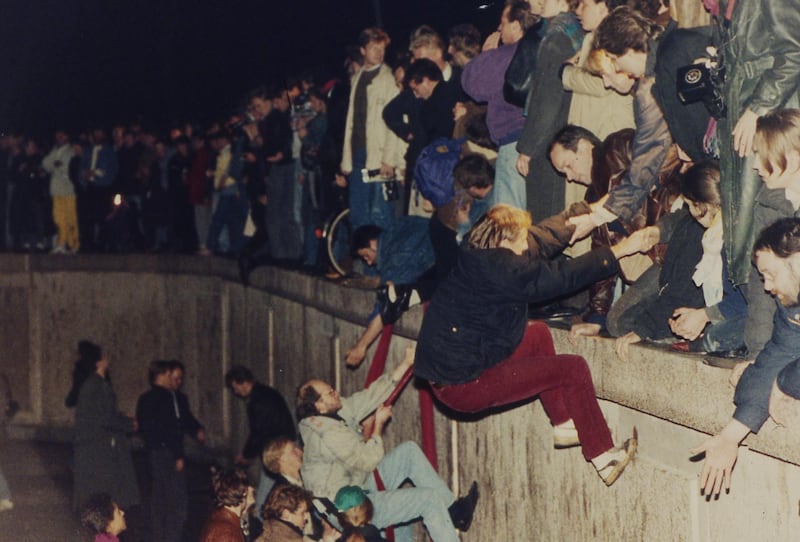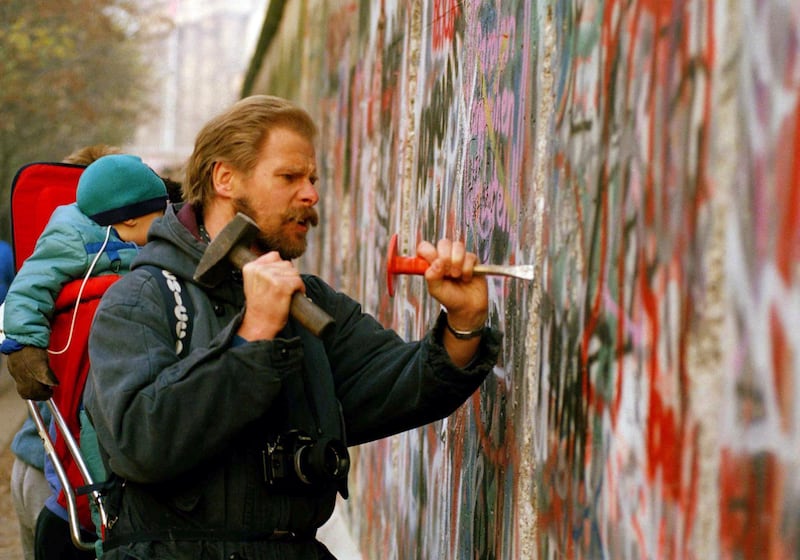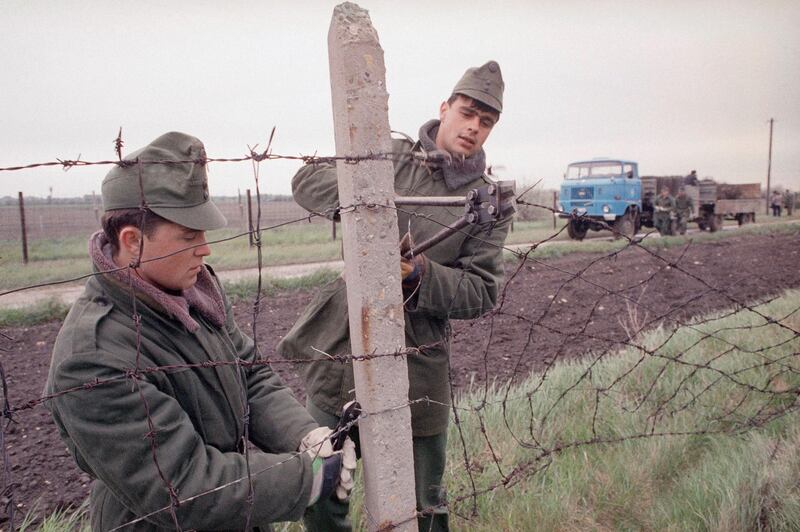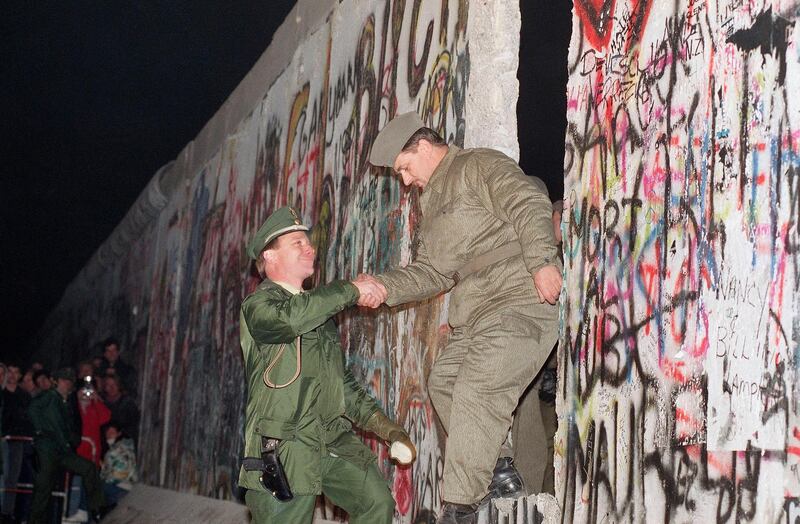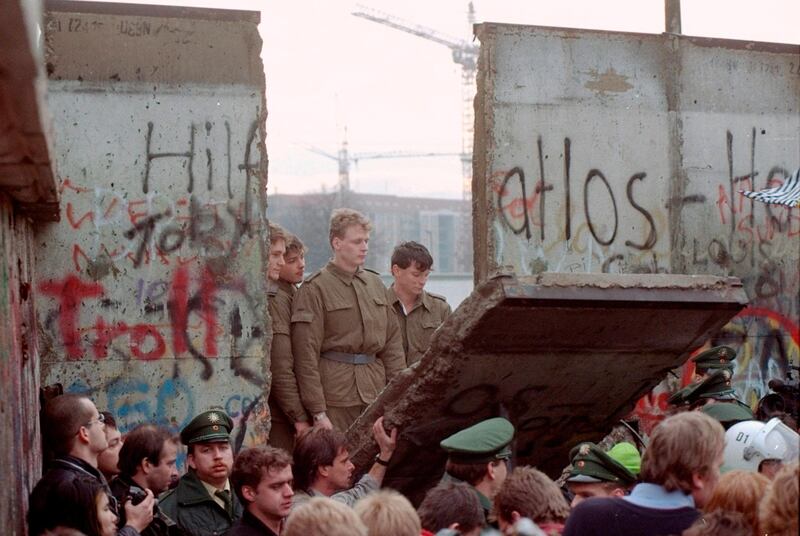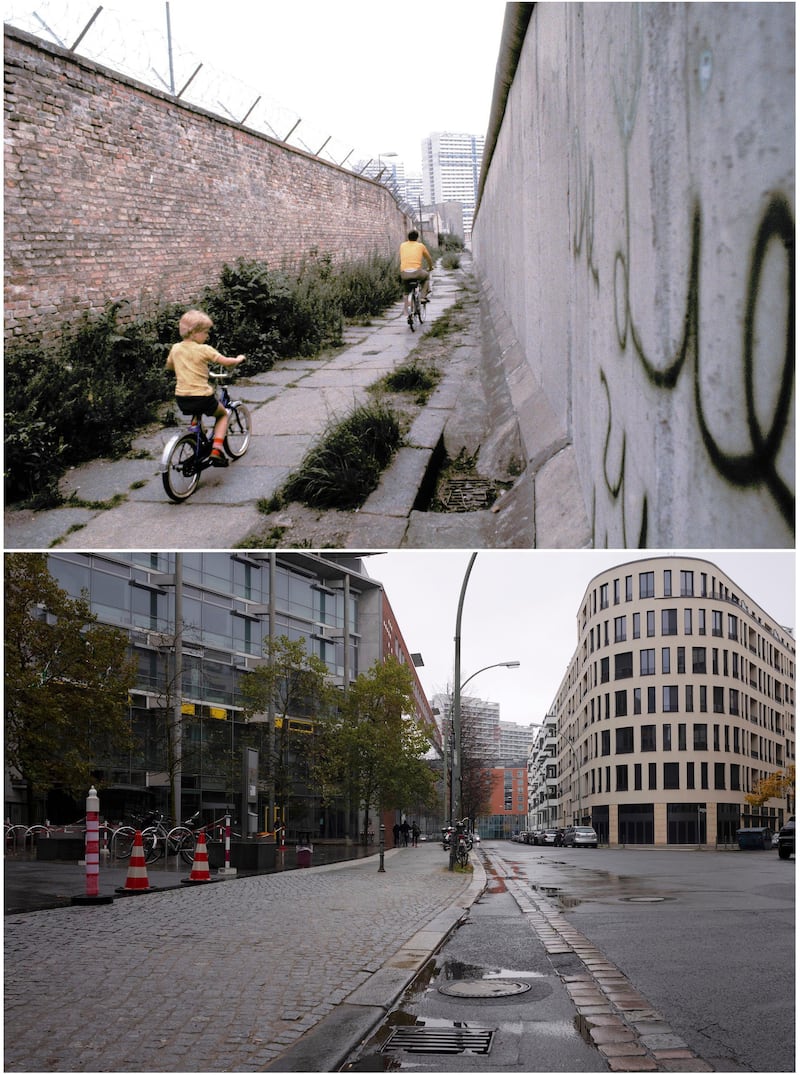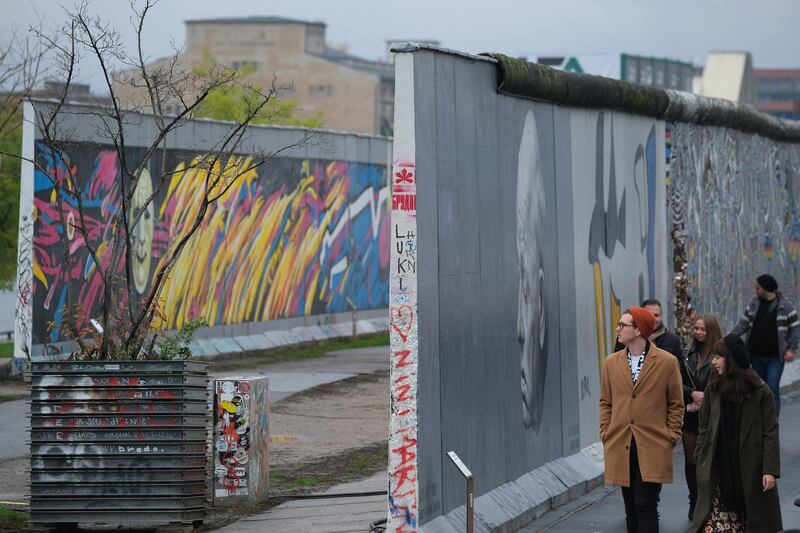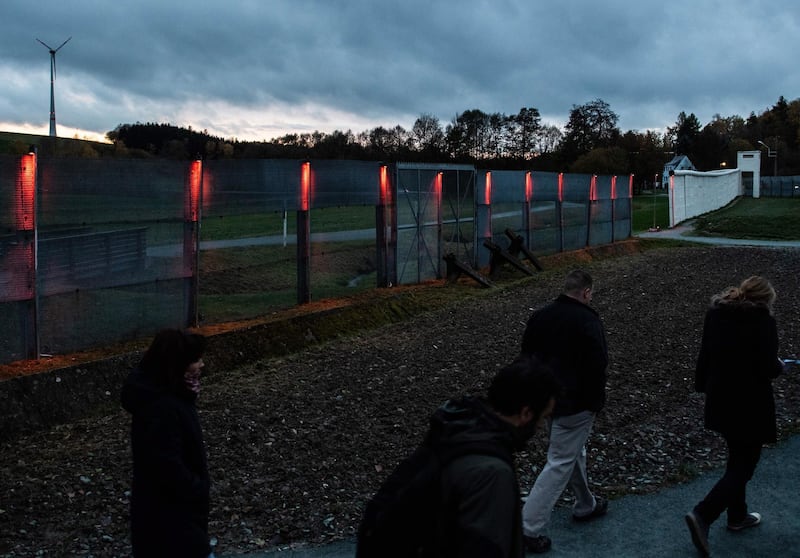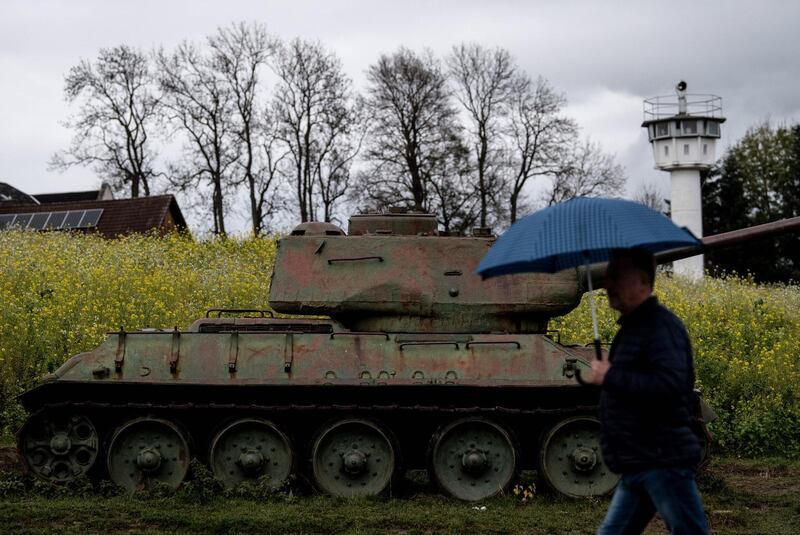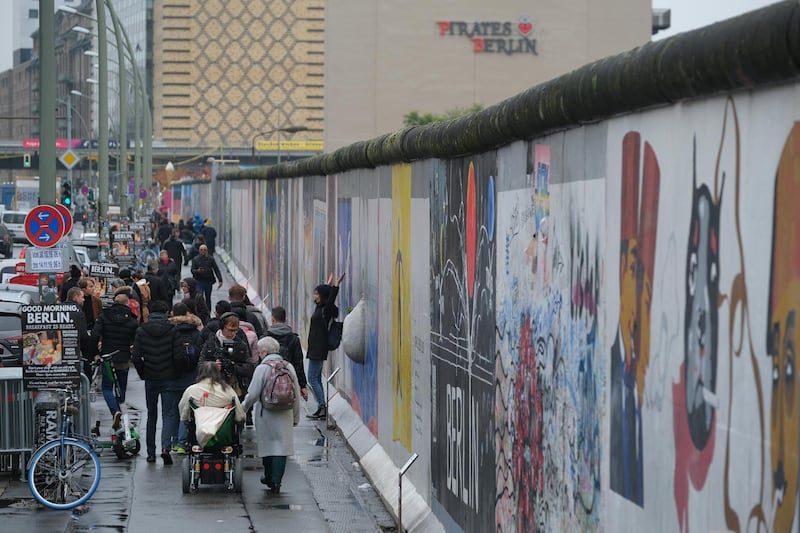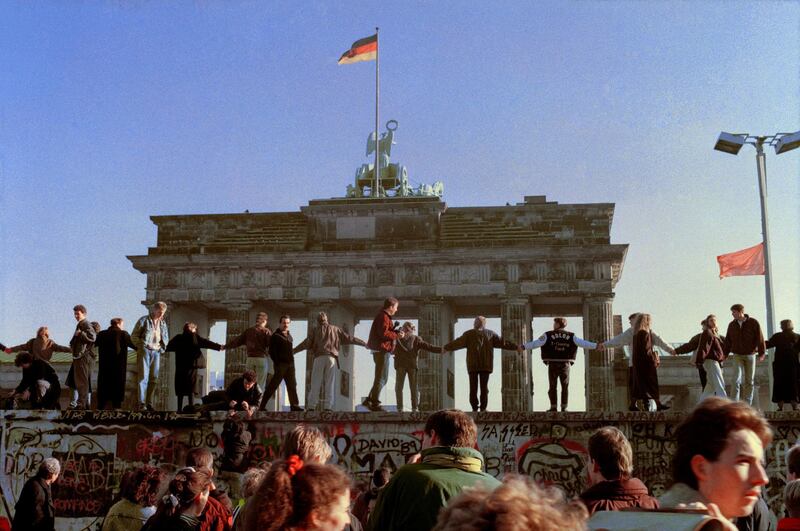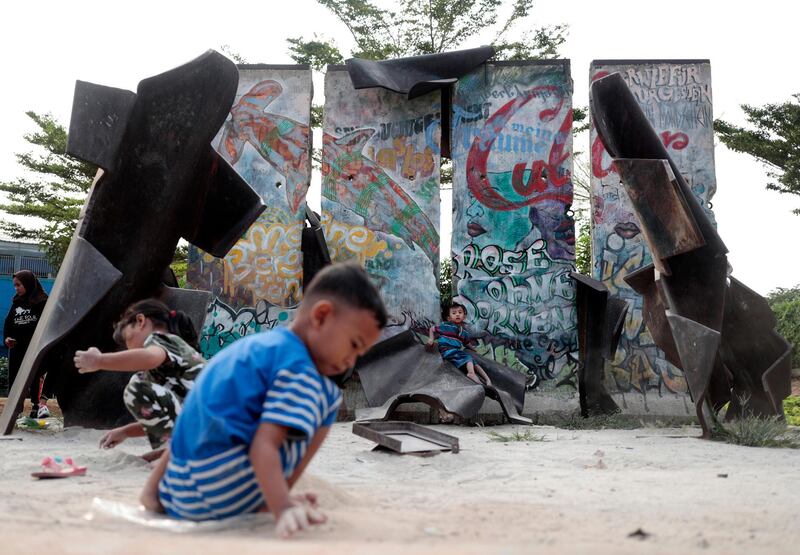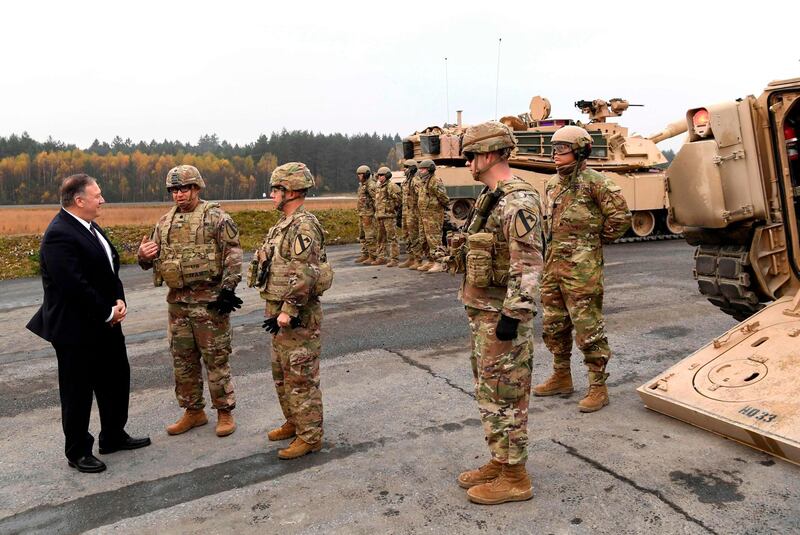It cut a city in two, trapped a million people and stood as a brutal reminder of the Cold War. But within a few hours it was all over.
The Berlin Wall crumbled on November 9, 1989, amid a wave of revolutions across Eastern Europe that left the Soviet system on the brink.
Vladimir Lenin, icon of the Soviet regime, said there were decades when nothing happens and weeks when decades happen. But even the speed of the wall’s collapse surprised everyone.
“My wife and I looked at each other and said: ‘is the wall open?’ We knew great changes were in the air but the wall coming down?," he said.
"That was beyond our imagination.”
That was the snap reaction of young German diplomat Peter Fischer. Mr Fischer is now German ambassador to the UAE but back in 1989 he was on holiday in Berlin from a posting in Singapore. An emergency news bulletin about people crossing the border interrupted his drive home from dinner.
“I said I have to get down there right now," he said.
Mr Fischer can still recall the powerful energy pulsating through the city. His first stop at about 10pm was Checkpoint Charlie - the famous crossing between East and West. The surly guards had simply waved crowds through, while people were chipping at the wall with hammers.
The brute certainties of almost three decades had given way to an impossible dream.
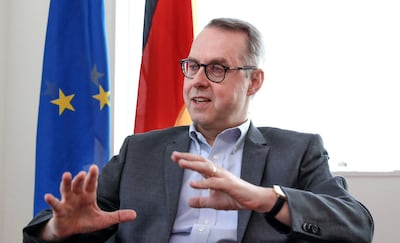
“TV crews interviewed the people coming through and asked them what their plan was. They said ‘we just want to have a look'. I really liked that.”
At another crossing, waves of Soviet-era Trabant cars were streaming through with people asking how to find Kurfurstendamm - Berlin’s main street - because their maps were useless.
“The East German maps of West Berlin were simply blank - it was the other side where you did not go,” said Mr Fischer, who was then 29.
“One Trabi came with a girl sitting on the roof with a bottle of champagne. People were cheering. One after another they came - like a big convoy. Then a boat sailed under a nearby bridge and blew its horn. It was surreal. It was a celebration. Wow.”
Mr Fischer is one of many German residents of the UAE who remember those tumultuous days.
Across the border in the East German town of Eisleben, Frank Michaelis was in the garden. It was just a normal Thursday.
“At 5pm my wife told me to come inside and have a look at the TV. At midnight, we were still sitting there with dirt on our hands from the garden planning a trip to the West," he said.
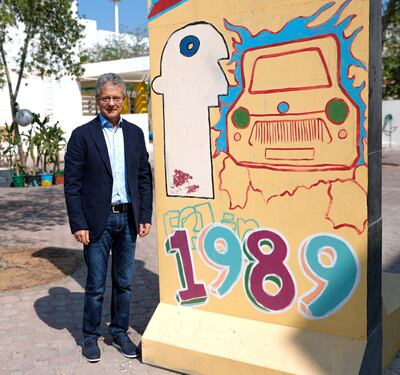
Mr Michaelis is now a teacher at the German International School in Abu Dhabi but remembers it clearly. Along with his wife and daughter, he travelled in a Trabant across the border on the Sunday.
“When I studied in Berlin and every day saw the wall – I thought I would never be able to cross,” said Mr Michaelis, then 32.
But now he was struck by the vast amount of fresh produce in the shops, the cleanliness and the friendly West Germans. “My daughter wanted one thing – to try her first Coca-Cola,” he said with a chuckle.
On the day the wall fell, West German chancellor, Helmut Kohl, arrived in Poland on a state visit.
Volker Bashe worked at the German embassy in Warsaw and had to look after the huge delegation. Now assigned to the German embassy in Abu Dhabi, he remembers a fraught and chaotic time.
“There were no smartphones and even the Communist landlines did not work properly,” said Mr Bashe, who was then 35.
“A kind of chaos broke out [in Warsaw]. What will happen? Everybody was in disarray. Kohl returned briefly to Berlin underlining the gravity of the situation before resuming the visit on November 11.
If an air of inevitability now surrounds November 9, this was not the case at the time. Nobody expected the wall to come down and it happened partly by accident.
East German authorities earlier in the day haphazardly announced private travel outside the country was allowed.
When crowds turned up at border crossings, guards let them through in the absence of clear instructions. But things could have turned bloody.
“I was with my baby and wife,” said Mr Fischer. “She said let’s go over. I said let’s not. Worse things could have happened and we know now that [they] discussed using violence.”
By 1991 the Soviet Union ceased to exist. But thirty years on, the optimism and hope of the era has subsided. It could never last.
Now a fresh set of challenges from Brexit to populism confronts Europe. And incredibly, some even mourn for the old East Germany or “Ost” in a trend known as Ostalgie. But Mr Michaelis rejects this.
“I didn’t hate East Germany. We went to discos and clubs,” he said.
“But I would have tried to escape if I could. Not at all do I miss it.”
Mr Fischer also cautions against a rose-tinted view but said both sides have a shared history.
“Sometimes people from the East have the feeling that people in West think their lives didn’t count. But there was happiness there. We need to appreciate that.
“But a naive Ostalgie is also not good because a lot of people suffered, were thrown into jail, tortured and killed. Don’t romanticise the system. Today there are challenges but Europe is much better off.”
